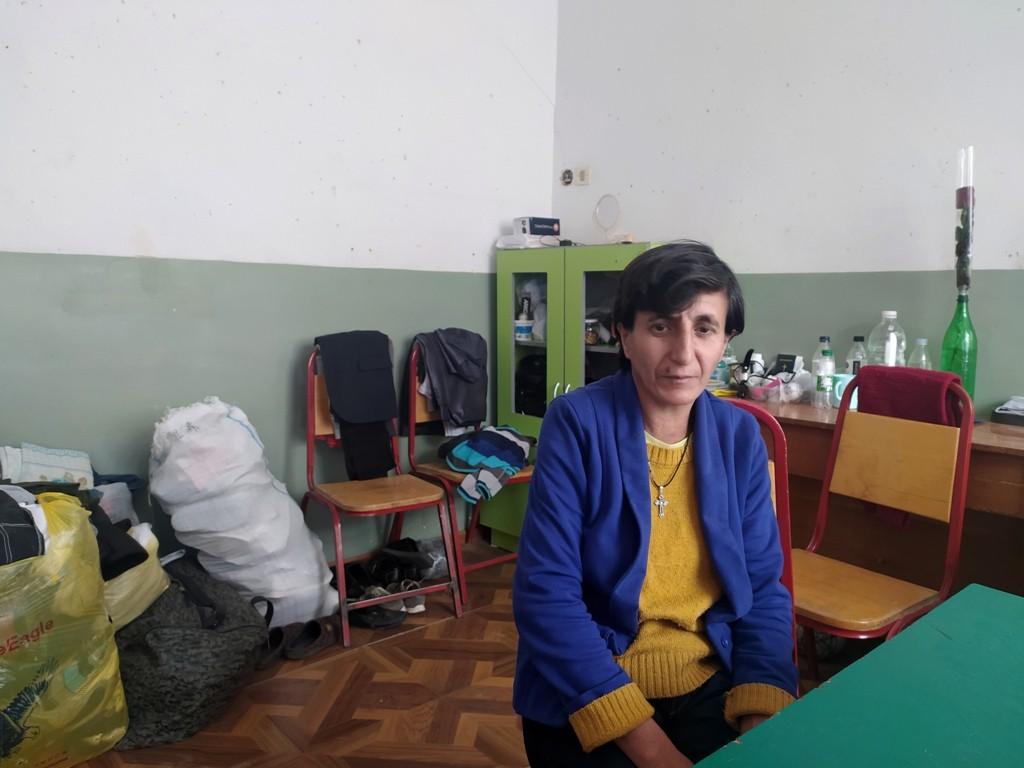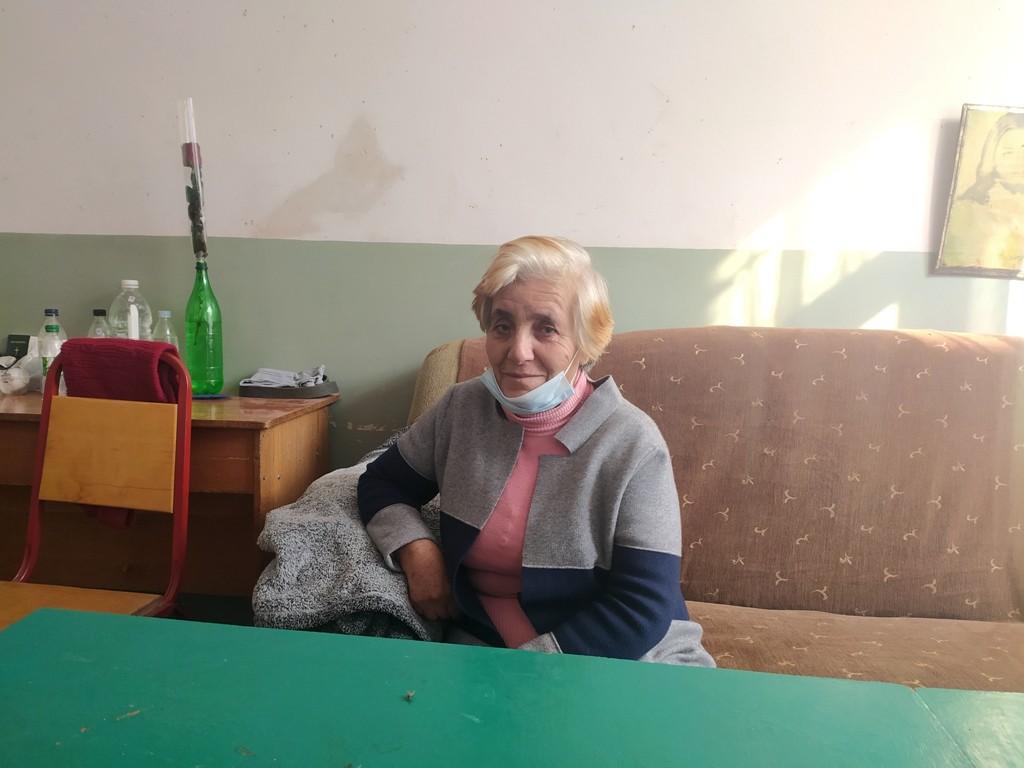
Karabakh Refuge Family: Living Alongside Azerbaijanis Is Impossible
Anahit Gokoryan left her house in the village of Vurgavan in Kashatagh on September 30, during the early days of the war.
Taking her five children with her, she believed the family would soon return.
Vuragavan is now under the control of Azerbaijan.
Mrs. Gokoryan realizes she’ll never see her home again.
"I thought it was like the four-day war. We didn’t evacuate in 2016. days. There were other people from Artsakh who came to Armenia with us. Their houses were shelled, they lost their belongings, but now they can go back, renovate their homes and live. We have no place to go back to. It sounds harsh, but we are in a worse situation now than the children in the orphanage,” says the mother of five.
Anahit Gokoryan's father and husband are currently in Artsakh. Mrs. Gokoryan, her mother and the five children now live in one of the schools in Armenia’s town of Armavir. Four of the children are minors who were at school during our visit.
The family is in a wait and see mode. They have no place to go and have not yet received an offer from the Artsakh authorities to resettle in an area still under Armenian control.
"It was really good in our Vurgavan. We had a house. It was great, something to cry about. 2016 After the 2016 four-day war, our house was built by funds donated by an American-Armenian philanthropist. We had been living in our new house for three years. We left everything and left. I do not need anything. Let them rob me completely, I would be satisfied with the empty walls of my house,” says Mrs. Gokoryan.
She worked as a cleaner in the Vuragavan village school. Her husband periodically worked overseas. The family raised livestock in the village and had vineyards. They left behind the animals behind.
Ms. Gokoryan says that Vurgavan is a small village with about 45 households. The calls to leave the village came as a surprise. This is why none of the villagers took anything with them, thinking that they would return in a few days.
“What really hurts is that our villages were captured without a fight. It's unfortunate that we just gave up our homes. There was no fighting in our village, no one was killed. I have never heard such a story in my life. We simply handed our house to the enemy and became refugees” says Mrs. Gokoryan.
Mrs. Anahit's mother, Mariam Arakelyan, listens silently during the conversation, periodically wiping away her tears.
When we talked about returning to the village and living with the Azerbaijanis, she immediately turned her gaze to us. She is against Armenians and Azeris living on the same land.
"They say refugees can return to live in their homes. How can we return to live with them? They only know how to slaughter. How can we be neighbors? I'm elderly, I'm not afraid. But how can I live next to them with my children? No. It’s impossible. If there they were four-five villages away, I would run to my house right now,” says Mrs. Arakelyan.
Mrs. Arakelyan also lived in Vurgavan with her husband and son.
Her son was wounded during the war. They have nowhere to go. They left the house emptyhanded.
Her son was forced to leave behind the family’s newly purchased car. He was in the process of getting a license.
"Whoever has a house goes back to Karabakh. I wish them success. One day it will be our turn," says Mrs. Arakelyan.
 Videos
Videos Photos
Photos

Write a comment